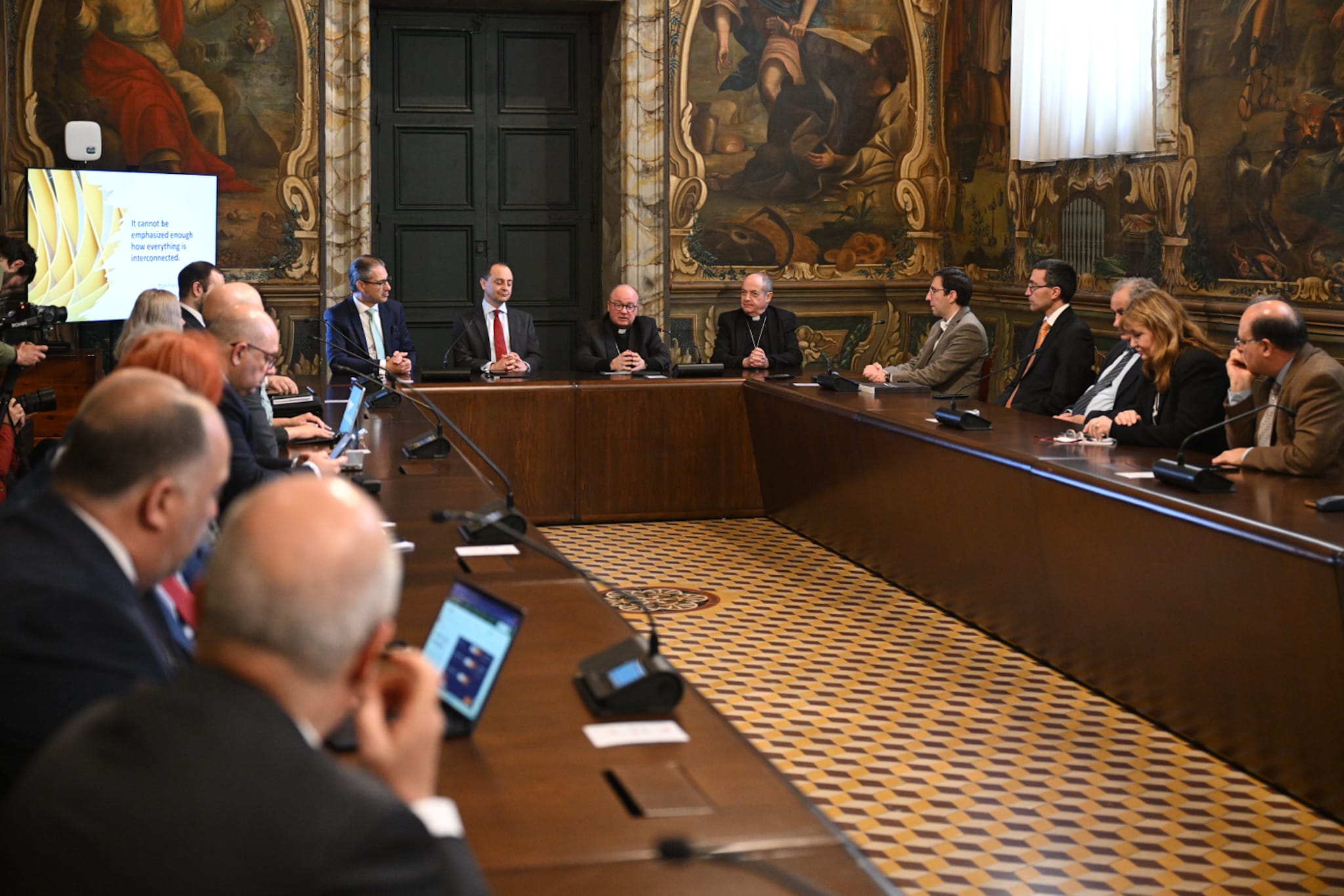
Archbishop Charles Scicluna urged the importance of including non-Maltese residents in decision-making, strongly advocating against treating them as second-class citizens.
He expressed this view during a meeting at the Archbishop’s Curia, attended by Bishop Joseph Galea-Curmi, and also involved the participation of the Parliamentary Secretary for Social Dialogue, the Hon. Andy Ellul and members of the Justice and Peace Commission. The discussion focused on the economy, the state of Maltese society, and strategies to improve the quality of life for residents in Malta.
The Archbishop stressed our duty to recognise the valuable contributions non-Maltese residents are making to the country and warmly welcome them into our society. He said that the Church in Malta is actively present with foreign communities, particularly with Christians residing among us, through the involvement of priests and laypeople.
He also stated that those managing and driving the country’s economy have a responsibility to work towards long-term objectives to protect future generations. “As a country, we have confirmed the choice, although against all currents, to respect human life from the very beginning, from conception. With this decision, we are telling our future generations that they are welcome and that they will grow up in an environment that welcomes and protects them. This is an important contribution to society and a clear demonstration of the value of mercy towards our neighbour.”
Archbishop Scicluna emphasised a shift in mentality and reminded those present that the state is not made up of the political party that governs but of all citizens. “We need to develop further what the Italians call ‘il senso dello stato’ because, as a people, our behaviour towards each other is still influenced by a colonial mentality. We should be conscious of the fact that we do whatever we do, whether positive or negative, for our children and not for the government.”
The Justice and Peace Commission outlined its mission to drive the country’s social consciousness through the Church’s teachings. President Daniel Darmanin highlighted the Commission’s recent projects, including ‘Beyond GDP’ for environmental sustainability and ‘Ejja Ejja Culture’ for health and safety in the construction sector. He addressed key citizen concerns such as financial income, housing, job quality, healthcare and education. The Commission reaffirmed its dedication to collaborating with social partners and government bodies to tackle these challenges.

Parliamentary Secretary for Social Dialogue, Hon. Dr Andy Ellul, expressed satisfaction with the focus on workers’ dignity and underscored the transformative power of social dialogue in improving people’s lives. He highlighted legislative achievements aimed at enhancing the dignity of workers, including the regulation of platform workers, resulting in improved working conditions and fairer wages. He underscored the agreement that increased the minimum wage by €21 per week and explained that the temping agencies law will also provide dignity to workers employed through employment agencies, both Maltese and foreign.
Furthermore, Dr Ellul stressed the importance of implementing ‘equal pay for work of equal value’, advocating for parity between workers of employment agencies and those directly employed by companies. He welcomed the endorsement of this concept by the Church in Malta, recognising its significance in bolstering workers’ dignity.
The social partners welcomed recent initiatives, emphasising the need for inclusive policies benefiting all sectors of society. Discussions addressed pressing challenges, including housing affordability, inflation, population growth, family value preservation, work ethics, and bolstering security and enforcement measures nationwide. The Civil Society Committee addressed pertinent issues such as drug-related concerns, while the Gozo Regional Committee spotlighted specific challenges affecting Gozo, notably environmental conservation and sustainable development.
Highlighting the essential role of the Archdiocese of Malta in fostering social dialogue, the MCESD underscored the significance of continuous engagement with the Church and its affiliates. This collaborative effort is deemed essential to addressing the economic and social challenges confronting our nation and ensuring the well-being of future generations through sustainable policies and development.





